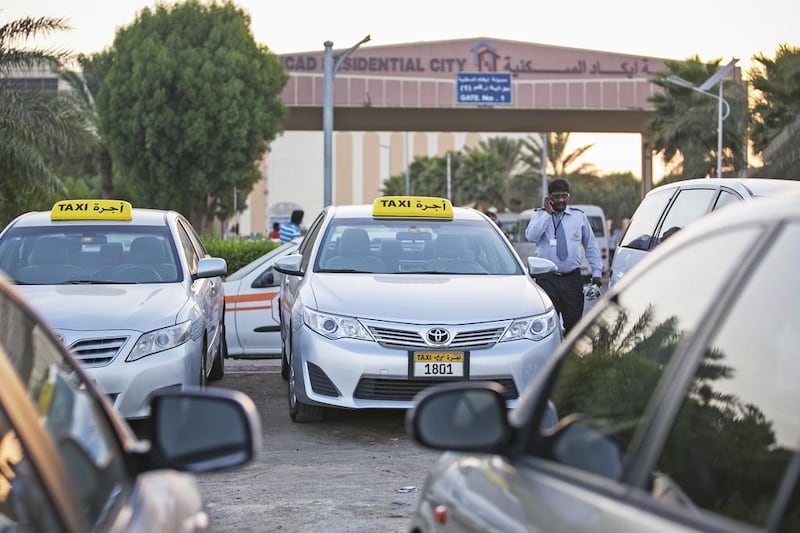ABU DHABI // Plans to build huge villages to house thousands of taxi drivers have stalled, with many drivers now living in labour camps.
But cabbies say conditions at the camps are not appropriate to their needs and are calling for new accommodation.
“We cannot take cars inside. There is no car-washing or repairing facility,” said Mohammed Gul, a Pakistani driver who lives opposite a camp in Mussaffah.
“Labour camps are for labourers and constructed to facilitate them. Why do drivers live there?
“I don’t like to live in labour camps as my companions reside outside. I wanted to share with my Pakistani friends. Seven of us share a rented room in Mussaffah and all are taxi drivers.”
TransAd, regulator of the taxi fleet in Abu Dhabi, announced plans for the villages in 2010 and 2012. The first was to be built in Mussaffah, followed by one in Al Ain and then Al Gharbia.
But most drivers are being accommodated on the outskirts of the city at Workers’ Village and International City in Mussaffah, and at Al Mafraq.
These are mainly occupied by low-income workers.
All drivers have Dh500 deducted from their salary to pay for the lodgings, whether they live there or not.
They also complain about not being allowed to park their cabs inside the camp, cook there or bring food inside.
“We don’t want to live there and they deduct Dh500 from our salaries each month,” said a driver from Nepal who lives in Workers’ Village.
“We don’t like labour camp food. We are not allowed to cook, brew tea, or carry outside food inside camp or park and wash the car inside the camp. Even if I am not going to live here they will deduct the same.
“Those who live outside have Dh500 deducted from their monthly wages.”
Another Pakistani driver, who lives in Al Falah Street in Abu Dhabi, also pays the Dh500 charge. But he said business was better in the city and he could cope with the deduction.
“It’s no problem if they cut Dh500 a month. We earn more than that,” he said.
“I don’t like to live in camps. We have to come to the city to get passengers.”
Most taxi drivers earn between Dh3,000 and Dh4,000 a month and work about 12 hours a day.
TransAd says about 8,000 taxi drivers work in the emirate but many taxis are being driven 24 hours a day.
It is expected that 10,000 drivers will be working in Abu Dhabi by the end of the year.
A K, from Pakistan, has driven a taxi in Abu Dhabi for 10 years and lives in one of the camps.
“We have to find parking spaces outside labour camps, which are already occupied by trucks and workers’ buses,” he said.
“Many times we have to find parking in sands far from the camp. I wish there would be a taxi village for us, as workers have their camps but we are pushed into it.”
TransAd had no comment.
anwar@thenational.ae






